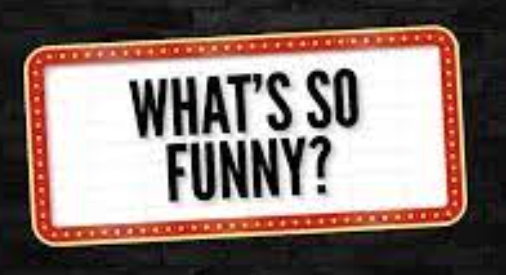
Operation Inspiration
By While often the “comedian” is looked down upon in society, it really depends on what kind of comedy he’s involved in. Making fun of others and taking potshots of them may evoke a laugh from a very base clientele, but this is not what a person should be doing and does not reflect well on them. The “shtuch,” the zinger, and similar insulting comments are NOT a Jewish ideal.
Nevertheless, Chazal tell us that comedians are very special people. In particular, there’s a story in the Gemara in Taanis about two people in the marketplace whom Eliyahu HaNavi pointed out as “B’nai Olam Haba.” When asked about their vocation, they replied that they were comedians and when they saw people who were down, they cheered them up.
I wondered. How did they cheer them? Did they tell them knock-knock jokes? Did they throw a pie in someone’s face? Make fun of someone’s stupidity? I dare say that’s unlikely because one who does such things doesn’t really deserve Olam HaBa as far as I can tell. The end doesn’t justify the mean, if you know what I mean.
The question is, what makes something funny? Why do we laugh? Scientists and humorists have long stated that the humor comes from the irony of the situation (which some say is the opposite of wrinkly) and the unexpected perspective. When we see something one way, then find it presented differently, we are amused and laugh.
Let’s look at a very basic joke. “Why did the chicken cross the road?” When you hear the answer, “To get to the other side,” you probably don’t find it funny. That’s because you know the joke so well that it is your primary perspective. The humor behind the joke comes from the fact that you’re expecting an intriguing answer but get a simple matter-of-fact one. That turnabout is humorous, hence the joke.
I found an old picture I took with Jake Turx, a friend known for his wit, at a wedding some years ago. Making a self-deprecating comment, I marveled in a text message, “I still have that tie!!!” Jake’s response: “Who else would have it?”
I burst out laughing. Why? Because his response was unexpected and, like the chicken joke, a very normal and rational way of looking at my statement. I hadn’t even seen it that way, so I found his response hilarious.
Now back to our comedians. When they saw someone sad, they would cheer them up. How? By pointing out to them that what they saw as so terrible could be viewed differently, perhaps in a completely plausible way it could even be considered a good thing! We’ve all heard stories of people missing a flight, only to find out the plane crashed, and of course, there are myriad stories of people who were slated to be at the Twin Towers on September 11, 2001 but for some reason or another, they were unable to make it there, which at the time they’d seen as a negative. That ability to help people see the good in their lives and learn to look for it, is a holy occupation that definitely connects to Olam HaBa.
In Shir HaMaalos, Dovid HaMelech writes, “Az yemalei s’chok pinu,” then our mouths with be filled with laughter. Chazal say that until Moshiach comes, one must be a bit somber, never “filling” his mouth with laughter. But what will be so funny about when Moshiach comes?
The answer is quite obvious. All those things we saw as bad, or tragic, or terrible, will be presented to us again. This time, they’ll be accompanied by a simple, matter-of-fact explanation that will make us wonder how we ever saw them as we did. It will make so much sense that we will laugh at our own overthinking of the situation, or the fact that we missed the proper perspective.
But why wait? Why should we wait until Moshiach comes and someone explains the joke to us? It’s never as funny when it’s explained as when you get the joke yourself. Instead, try to figure out the perspective that will make the most sense in a positive way. Just as we can find the bad in something quite easily, we should be able to find the good in an easy way. “K’sheim shemevorchim al hatov, kach mevorchim al hara,” we can praise Hashem for the bad things the same way we do for the good things when we can figure out how to see the good in them. And if we can’t see it, we can keep looking.
It’s like the man who had two sons, one who always saw the negative and one who saw the positive. He gave the first son an expensive toy car. The boy was upset because he was sure it would soon break. The father gave his other son a pile of manure. With giddy excitement, the boy clapped his hands. “Thank you, Daddy! I just KNOW there’s a pony in here somewhere!”
© 2021 – All Rights Reserved
Did you enjoy this column? Feedback is welcome and appreciated. E-mail info@JewishSpeechWriter.com to share your thoughts. You never know when you may be the lamp that enlightens someone else.